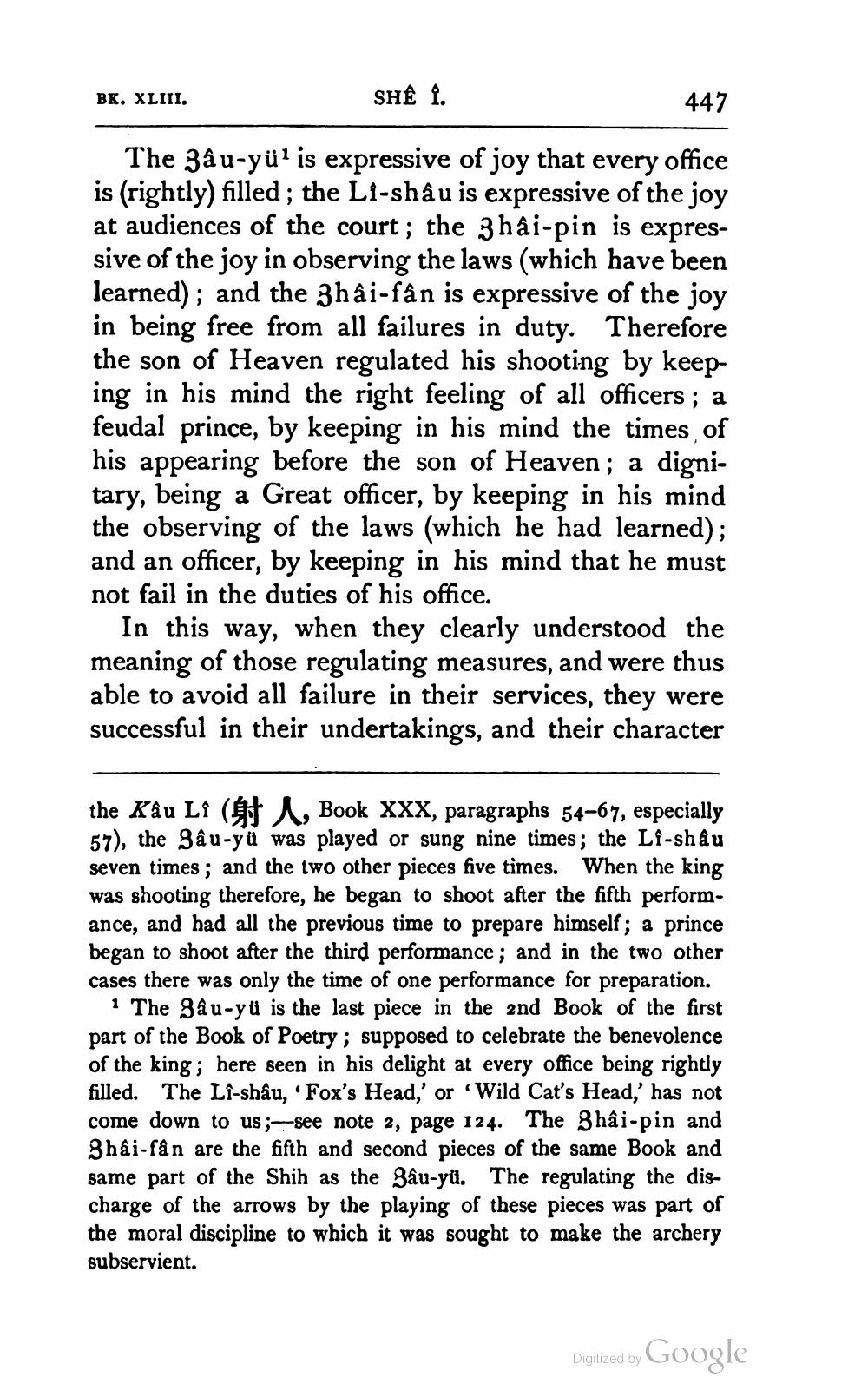________________
BK. XLIII.
SHẾ .
447
The Zà u-yül is expressive of joy that every office is (rightly) filled; the Li-shâu is expressive of the joy at audiences of the court; the 3 hâi-pin is expressive of the joy in observing the laws (which have been learned); and the Zhâi-fân is expressive of the joy in being free from all failures in duty. Therefore the son of Heaven regulated his shooting by keeping in his mind the right feeling of all officers; a feudal prince, by keeping in his mind the times of his appearing before the son of Heaven; a dignitary, being a Great officer, by keeping in his mind the observing of the laws (which he had learned); and an officer, by keeping in his mind that he must not fail in the duties of his office.
In this way, when they clearly understood the meaning of those regulating measures, and were thus able to avoid all failure in their services, they were successful in their undertakings, and their character
the Kâu Lî ( 1, Book XXX, paragraphs 54-67, especially 57), the Sâu-yu was played or sung nine times; the Li-shau seven times; and the two other pieces five times. When the king was shooting therefore, he began to shoot after the fifth performance, and had all the previous time to prepare himself; a prince began to shoot after the third performance; and in the two other cases there was only the time of one performance for preparation.
1 The Sâu-yu is the last piece in the 2nd Book of the first part of the Book of Poetry ; supposed to celebrate the benevolence of the king; here seen in his delight at every office being rightly filled. The Lî-shâu, 'Fox's Head,' or 'Wild Cat's Head,' has not come down to us ;-see note 2, page 124. The Zhâi-pin and 3hai-fan are the fifth and second pieces of the same Book and same part of the Shih as the Bâu-yů. The regulating the discharge of the arrows by the playing of these pieces was part of the moral discipline to which it was sought to make the archery subservient.
Digitized by Google




